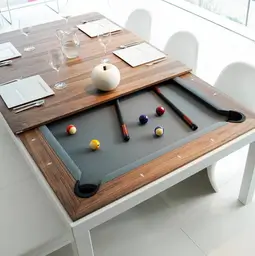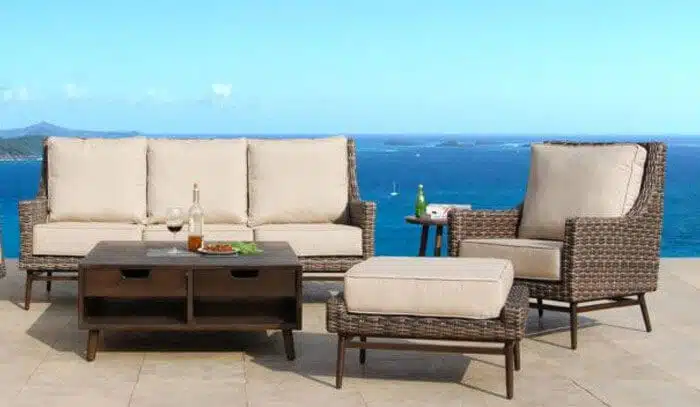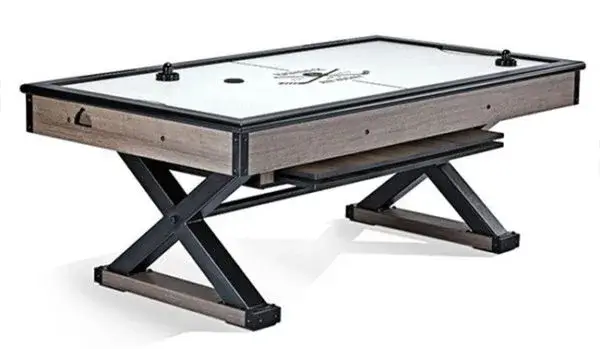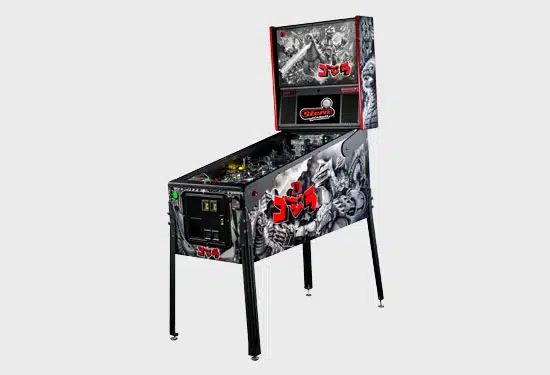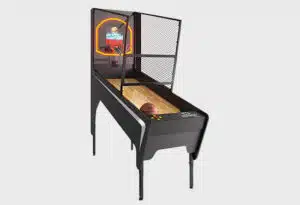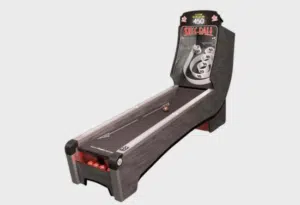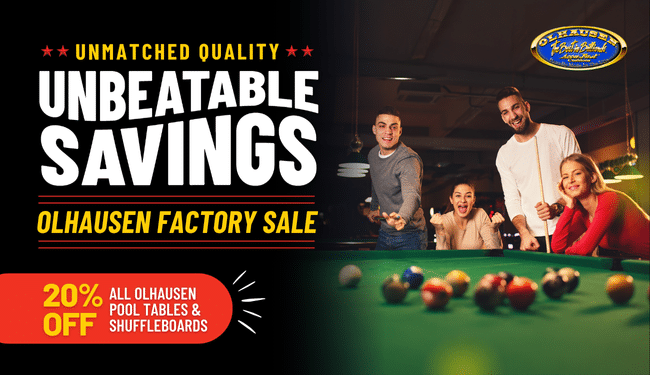Showing 25–48 of 74 results
Purchasing a pool table is a substantial investment, so once you’ve secured the pool table that’s right for you, it’s important that you have pool cues that are as perfect as your pool table. Greater Southern Home Recreation wants you to be as informed as possible about pool cues. So, we’ll outline everything you need to know when you’re in the market for pool cues.
What is a Pool Cue?
A pool cue, also known as a pool stick or a pool table stick, is arguably the most important piece of equipment that a pool player needs to obtain. The object of the game of pool is to hit various balls into pockets on the side of a pool table and to hit the balls into the pocket. So, it is vital that you have a good pool cue so that all of your shots will be as accurate and powerful as possible. All of these components play an enormous role in the performance and effectiveness of your cue, so knowing and understanding its uses can go a long way for your play.
What Is The Difference Between American and British Pool Cues?
When you’re in the market for a pool cue, you have the option to choose between an American-spec pool cue or a British-spec pool cue. As implied by their names, an American pool player usually buys an American-spec pool cue, and a British pool player will buy a British-spec pool cue. This is simply because each country has different regulations for professional play.
To be specific, the American-spec pool cues feature tips that are much larger and wider than British cues, so with this cue, the player will be able to hit the balls harder and more powerfully. On the other hand, British-spec pool cues have smaller tips, and they are more geared towards accuracy and control, not power. Another reason that the two cues are different is that British pool tables and American pool tables are different. Whereas British pool tables are smaller, American pool tables are much broader and have larger pockets. So, power is more critical to the American pool, and accuracy is more important to the British pool. These changes are primarily regional, but it is important to be aware of these differences before making your final decision.
How Long Should My Pool Cue Be?
The length of the pool cue depends on the player’s height and the size of the room in which the pool table is situated. There are three standard sizes for pool cues: the fifty-seven-inch cue, the forty-eight-inch cue, and the thirty-six-inch cue. For most adult players, it is best to utilize a fifty-seven-inch cue. However, it is best to purchase a forty-eight-inch cue if you are shopping for a younger or shorter player. The smallest sized cue, which is a thirty-six-inch cue, is best for young children who are interested in playing pool. Although it is not the most ideal, if your table is situated in a small room, then you can use a forty-eight-inch or a thirty-six-inch cue, even if you’re a relatively tall adult player.
Should I Purchase a One Piece, Two Piece, or Three Piece Cue?
The most common types of pool cues come in either one piece or two pieces, there are also three-part cues available, but these cues are rarer. In the past, it has been a fact that the best cues are one-part cues because there are no moving parts or joints involved that could taint the shot’s power. However, as technology has advanced and cues have gotten more sophisticated, this fact has become outdated because two-part and three-part cues shoot just as cleanly and powerfully as one-part cues. So, assuming you are purchasing a quality, well-made cue, there will not be much difference between a one-part, a two-part, and a three-part cue.
Professional pool players use all three types of cues, but there is one advantage to two- and three-part cues: these cues are easier to store. So, if you think you’ll be storing your cues and taking them to competitions or other pool tables, then opt for one that can retract into a smaller, compact form. Because modern cues are made of metal, two and three-part cues will quickly expand and contract, and you will not encounter problems with assembly because of the contemporary pool cue’s seamless design.
It can be worth trying each size for yourself to get a feel for each individual cue. The small adjustments and variations in these different sizes can go a long way in changing the way to play your game.
If I Purchase a Two Part Cue, What Kind of Joint Should It Have?
Two different-sized joints accompany two-part pool cues: the half-inch joint and the three-fourths-inch joint. The three-fourths inch joint was introduced so that players could put a butt extension on their cue, so if you’re looking to do that, then you should purchase a cue that has a three-fourths inch joint.
What is a Butt Extension?
Sometimes, a pool player might want to make their cue longer than the standard fifty-seven inches. In this case, it is necessary to put a butt extender onto your pool cue, and these extensions are often only about ten inches long. Many pool cues come with butt extenders, so when shopping for pool cues, whether or not the stick includes a butt extension might factor into your decision.
How Much Should My Pool Cue Weigh?
You might think that the weight of your pool cue should be contingent on how much you can carry or how powerful you want your shot to be, but this is not the case. Instead, the most crucial factor when choosing the weight of your cue is balance because the weight of your cue will dictate how the cue is balanced in your hands. How you like to hold your cue will determine if you should get a heavy, a medium, or a light cue. Because pool is about precision, your stance is essential, so your cue should be catered to your stance. Most pool cues range from sixteen ounces to eighteen ounces, and the difference in sizes might seem minimal, but in actuality, it is substantial. Pool is considered a game of inches, something that might seem like a factor can end up being an enormous difference in your ability and results in a game of pool.
What Do I Need to Know about Tips?
Each pool cue is equipped with a tip designed to fit the cue. However, if you want to be experimental, you can alternate your cue tips to see if another tip is better for your playing style. Another thing to consider when you’re buying a pool cue is whether your cue has screw-on tips or glue-on tips. Often, screw-on tips are used in communal settings when the tip is going to be changed frequently, so if you think one person is going to be the primary user of your pool cue, then getting a glue-on tip is the best option.
The tip size is another crucial factor to consider when buying a pool cue. It is important that your tip is as wide as the diameter of your shaft, and it cannot be any smaller. In terms of size, a smaller tip will allow you to have more control over your spins, while a larger tip will give you less control over your spins, but it will also provide you with a more powerful shot consistently.
Finally, tip hardness is essential to consider. The harder your pool cue’s tip is, the more force will be transmitted onto your cue ball. So, a harder tip is the best if you’re interested in breaking, jumping, or completing harder, long power shots. However, when you have a hard tip, then you’ll have less control over your spin. So, a softer tip will allow you to have control over your spin, but you won’t have as much power. Most people will play with a medium tip to find equilibrium between these two factors.
What Types of Pool Cues Does Greater Southern Home Recreation Offer?
Greater Southern Home Recreation offers a wide variety of state-of-the-art pool cues. We have a Commercial One-piece Cue made of 100% Maple wood. We also offer a 48-inch Maple Cue, a 52-inch Maple Cue, and more.
Although we’ve outlined many standard sizes, many pool cues might vary from these measurements. So, Greater Southern Home Recreation offers cues of assorted sizes to fit every player’s needs. If you have questions about which size is right for you, then we encourage you to reach out to us or come to our showroom. Our team of highly trained associates will be more than happy to help you find the perfect cue for you!
Pool Tables
Outdoor & Patio
Game Room Furniture
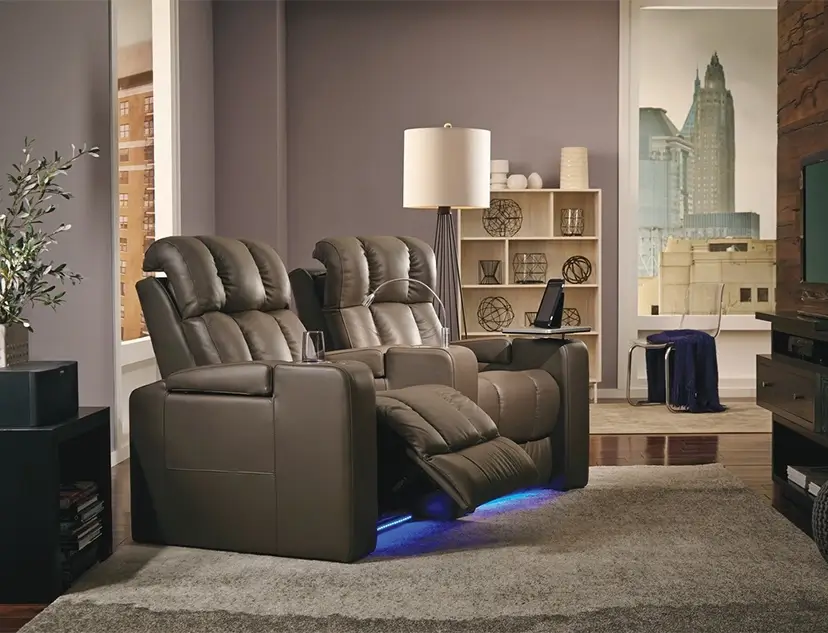
Games
Arcade
Accessories
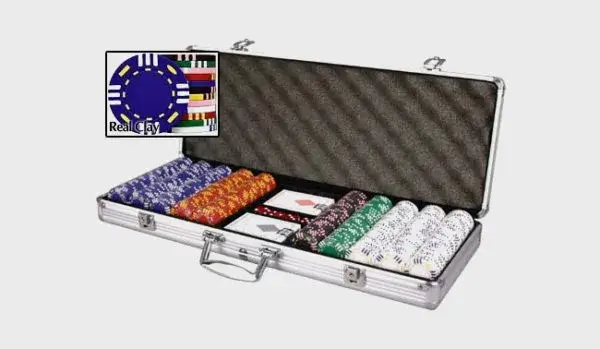
Services
Specials
